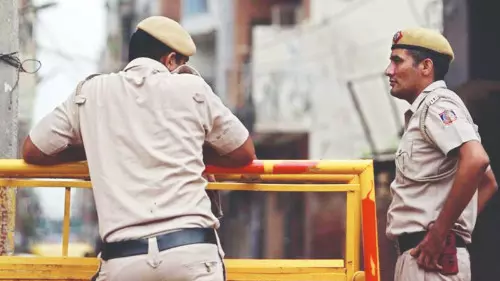Landmark order lets court begin trial in absence of fleeing accused

NEW DELHI: Delhi Police, for the first time ever, has exercised Section 356 of the Bharatiya Nagarik Suraksha Sanhita, which allows police to frame charges and the court to proceed with trial in the absence of absconding accused in serious cases, an official said on Monday.
The charges were framed against Jitender Mehto, who has been on the run for months after murdering his former employer, Ramesh Bhardwaj (68) -- both residents of Delhi.
According to Deputy Commissioner of Police (Outernorth) Hareshwar Swami, a missing case was registered on January 29 this year after Bhardwaj’s daughter filed a complaint stating that he has not returned home after leaving for Narela on his scooter a day before.
The investigators, who suspected foul play, quickly zeroed in on Bhardwaj’s old servant Mehto, who vanished the same day. Police discovered that Bhardwaj had, around the time, received Rs 4.5 lakh as part payment for a plot sale and was last seen with Mehto. Witnesses also confirmed that Bhardwaj used to frequently visit the suspect’s rented accommodation, the official said.
A massive search for the accused was launched across several localities, including Azadpur, Mukundpur, Narela and Rohini. However, analysis of call detail records, movement patterns, and location data failed to reveal the suspect’s whereabouts.
With conventional leads drying up, the investigators turned to digital surveillance. On February 12, police traced Mehto’s son Abhishek alias Vishal through his
Instagram activities.
During interrogation, the 19-year-old allegedly confessed that his father murdered Bhardwaj on January 28 and disposed of the body with his help. Abhishek claimed that the victim’s son, Love Bhardwaj, who had a longstanding dispute with his father, was also involved in the crime.
On Abhishek’s disclosure, the police recovered Bhardwaj’s highly decomposed body, stuffed in a gunny bag, from a drain in the city.
However, Mehto continued to evade arrest despite multiple search operations.
A non-bailable warrant was issued against him on March 25. The court declared him a proclaimed offender on July 11. Police filed a chargesheet on August 25 and sought permission to begin trial in the absence of the accused.
The court subsequently invoked Section 356 of the Bharatiya Nagarik Suraksha Sanhita (BNSS), a new provision that enables inquiry, framing of charges and trial against absconding proclaimed offenders in serious cases. Charges were also framed under relevant sections of the Bharatiya Nyaya Sanhita.
The order, passed on November 18, is the first application of the BNSS provision in Delhi.
Officials said the provision is meant to stop accused persons from obstructing justice by absconding, closing a long-standing gap in the older CrPC that prevented serious trials without the accused present. DCP Swami said the order ensures fugitives can still face trial, calling it a significant step toward strengthening accountability under the new criminal justice framework.



